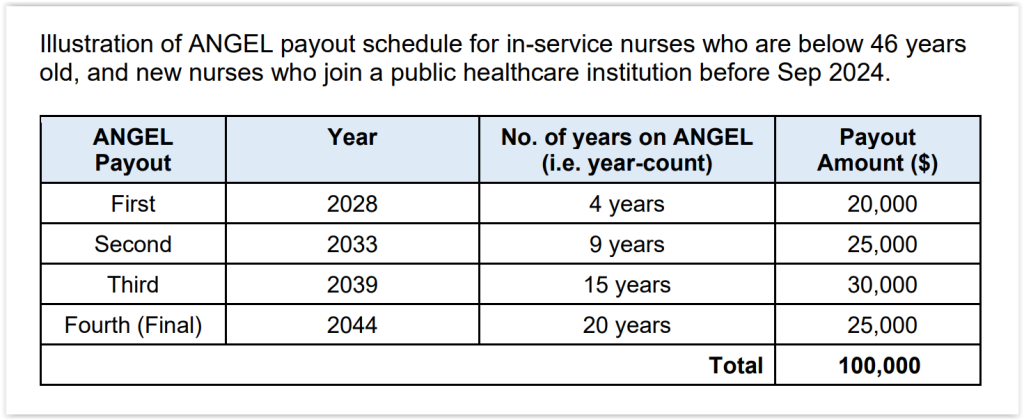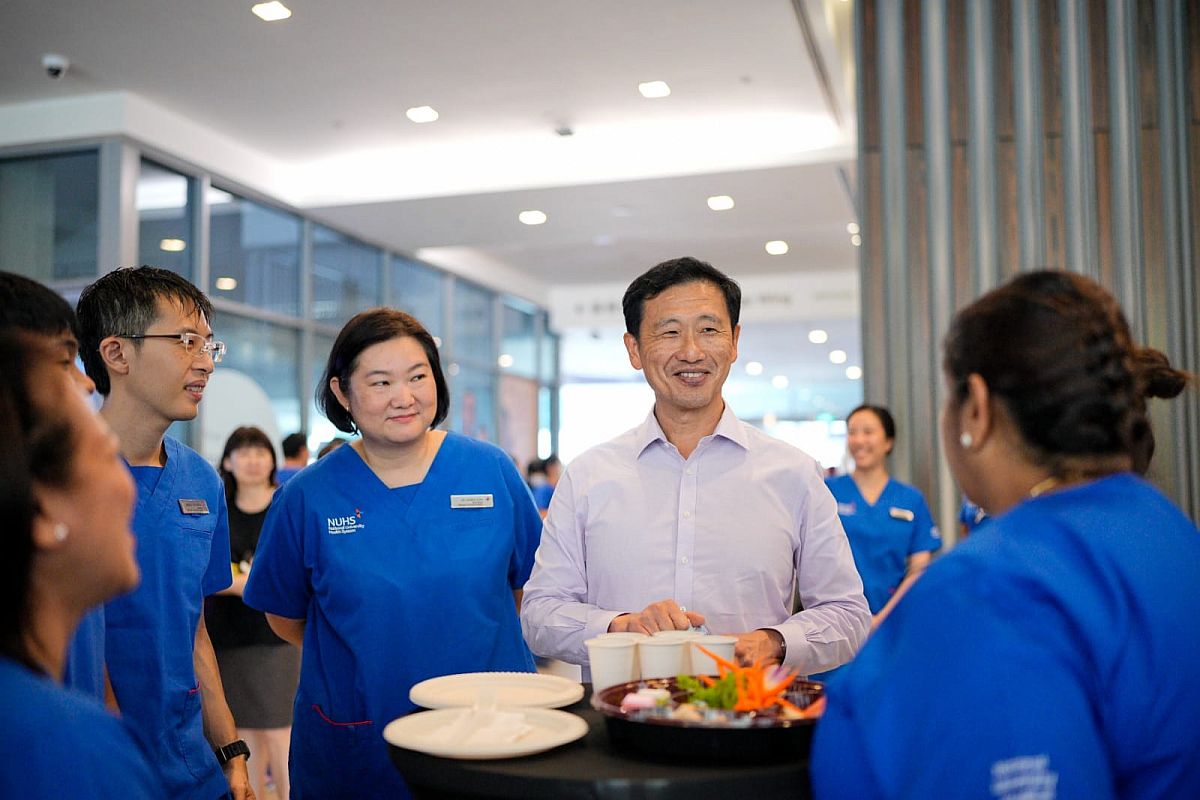KUALA LUMPUR, Feb 21 – Singapore’s Ministry of Health (MOH) has launched a long-term retention incentive scheme for both local and foreign nurses in the public health care system.
Singapore’s Health Minister Ong Ye Kung said that under the Award for Nurses’ Grace, Excellence and Loyalty (ANGEL) scheme, each nursing officer can potentially receive up to S$100,000 (RM356,818) over a 20-year period, or up to the prevailing retirement age, whichever is earlier.
“Some of you may be from a foreign country. You will be asking if this is only for Singaporeans. I should add that the ANGEL scheme is applicable to foreign recruited nurses too,” Ong said in a speech at the National University Hospital Luving Nurses Forum yesterday.
“However, we must recognise this – for foreign nurses, integrating into the Singapore system and society takes time. The majority successfully does so, but some, a minority, will not work out and they leave.
“We will therefore effect the ANGEL scheme for foreign nurses after you have served four years of service in our public health care sector. If you have already served continuously for four years or more, you are immediately eligible.”
Ong said some 29,000 nurses in Singapore’s public health care system, as well as newly recruited nurses every year from now on, would benefit from the ANGEL scheme.
Nurses aged 46 years and above with at least five years of service will receive an immediate award of S$5,000 (RM17,841) to S$15,000 (RM53,523) this year, with the amount depending on years served, whereas younger nurses will get their first payout in 2028 when they reach their first milestone.
The Singaporean health minister noted that Singapore has been recruiting foreign nurses from regional countries to augment its local nursing workforce.
“Health care employers have set aside supervisory bandwidth to onboard and train new foreign nurses because you need to get used to working in Singapore, and we integrate you into the working environment and culture of our local hospitals,” he said.
Ong also assured other health care professionals that the Singaporean government has not forgotten them.
“We set up the ANGEL scheme because nursing is the largest health care profession in our system, and competition for nursing recruitment has become more intense. Please be assured that if you are not a nurse, we will review the competitiveness of all the professions within health care, and make the necessary adjustments to the remuneration package wherever necessary.”
Both the public and private health care sectors in Malaysia have been haemorrhaging nurses to other countries, such as Singapore, Brunei, and Dubai in the United Arab Emirates, due to higher pay, improved work-life balance, and better overall working conditions.
A staff nurse at a university hospital in the Klang Valley recently told CodeBlue that her monthly basic salary remains at RM2,600, despite 14 years’ experience.

A separate statement by Singapore’s MOH said newly recruited nurses and nurses aged below 46 years old would receive payouts every four to six years from the time they onboard onto the ANGEL scheme, with each payout ranging from S$20,000 (RM71,364) to S$30,000 (RM107,046).
“The majority of nurses serving in public health care join the profession at a young age, and will be able to enjoy the full benefits of ANGEL if they stay on to pursue a career in nursing,” said Singapore’s MOH.
“Foreign nurses who have been in continuous service for at least four years and demonstrate their commitment to Singapore’s public health care system will also be eligible.”
Publicly funded Community Care Organisations (CCOs), as well as Social Service Agencies (SSAs) funded by the Ministry of Social and Family Development (MSF) will also be invited to participate in ANGEL.
“With the introduction of ANGEL, we hope to encourage nurses to stay and continue to contribute to the public health care system, as well as to attract more to take up nursing as a career,” said Singapore’s MOH.
“As our population ages, the demand for health care services and manpower will continue to increase. MOH is committed to building up our nursing workforce to meet Singapore’s future needs by improving the attractiveness of the nursing profession, growing the local nursing training pipelines for both fresh graduates and mid-career entrants, as well as recruiting foreign nurses to augment our local core.
“Beyond remuneration and awards, we have put in place other attraction and retention measures for health care workers in general, such as supporting mid-career entrants, providing career development and progression, and ensuring a conducive work environment through the prevention of abuse and harassment of health care workers.”








